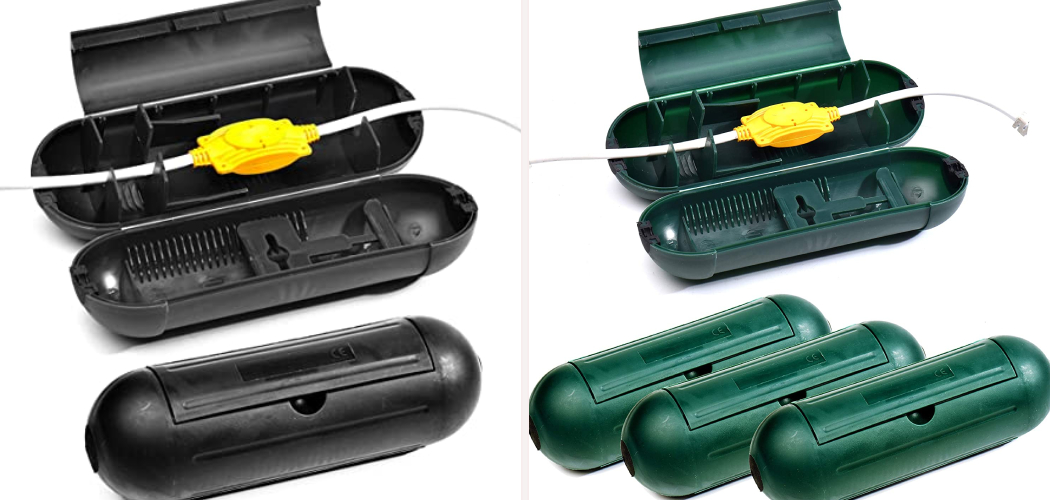There’s nothing like the summer sun to make you appreciate the power of electricity. But unfortunately, that same power can also be a hazard if it comes into contact with water or other elements. In this blog post, we’ll share some tips on how to protect electrical cords outside from damage and extend their life. Keep reading for more!
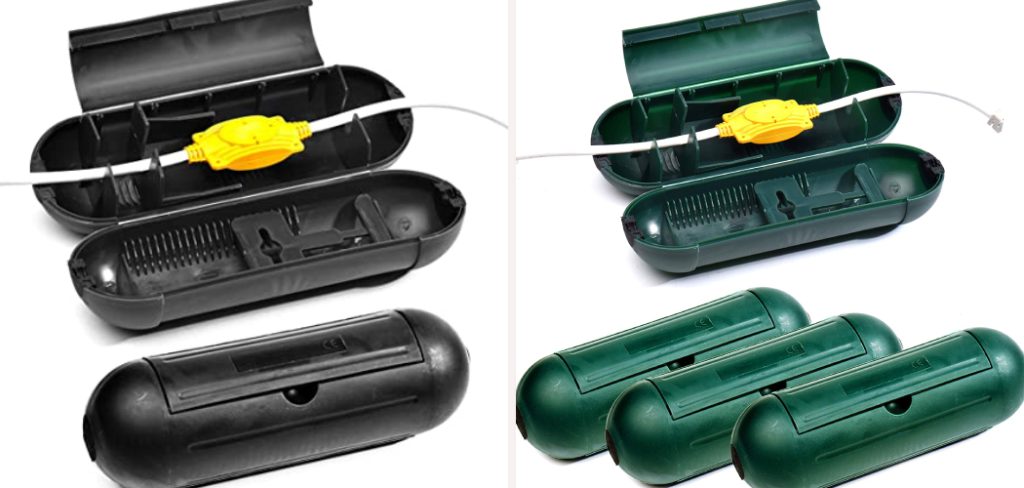
What Are Electrical Cords?
An electrical cord is a device used to connect an appliance or other type of electrical equipment to an electrical outlet. The most common electrical cord is a standard extension cord, which is often used to connect a lamp or other small appliance to a wall outlet.
However, specialized cords are also used for larger appliances, such as washing machines and dryers. Electrical cords come in various sizes, lengths, and colors and can be bought at most hardware stores. With the proper care, an electrical cord can last for many years.
Why Should You Protect Electrical Cords Outside?
Electrical cords are essential for powering outdoor lights, but they can also be a tripping hazard. While it might seem like a good idea to tuck them away out of sight, this can increase the risk of damage. Cords that are left exposed to the elements are more likely to become frayed or damaged, creating a fire hazard.
In addition, cords that are not properly secured are more likely to come loose, creating a potential electrocution hazard. By taking a few simple precautions, you can help to keep your family safe and avoid costly repairs.
Start by ensuring that all electrical cords are rated for outdoor use. Then, make sure to secure them using heavy-duty zip ties or tape. Finally, regularly inspect your cords for signs of damage and replace them if necessary. By following these simple tips, you can help to keep your family safe and reduce the risk of electrical accidents.
How to Protect Electrical Cords Outside Step by Step Guide
Step 1: Inspect Cords for Damage
Check electrical cords for any damage before using them outdoors. Do not use the cord if you see any fraying, signs of melting or other damage.
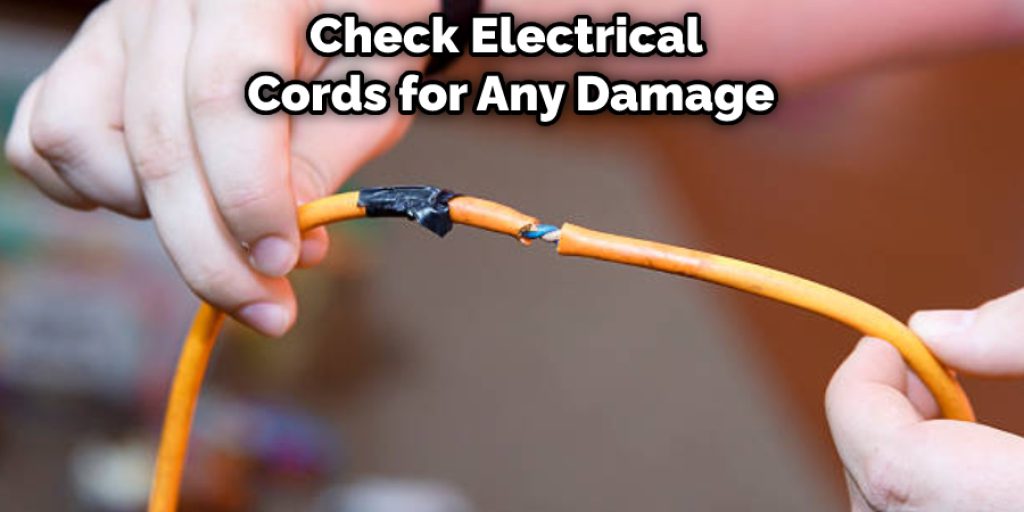
Step 2: Use a Cover
If you are running your electrical cords outside, you must use a cover. This will help protect the cords from the elements and keep them in good working condition. There are a variety of covers available on the market, so be sure to choose one that is durable and weatherproof.
Step 3: Use Grounded Cords
If possible, always use grounded cords when working with electricity outdoors. This will help protect you from electrical shocks in case of a power surge or other accident. Be sure to follow all safety guidelines when using grounded cords.
Step 4: Keep Cords Out of the Way
When setting up your outdoor electrical system, keep cords out of the way. This will help to prevent tripping hazards and accidental damage. If possible, run cords along the edge of a patio or deck where they will be less likely to be in the way.
Step 5: Use Cord Protectors
If you need to run cords across a walkway or other high-traffic area, use cord protectors. This will help keep the cords in place and prevent them from being damaged by foot traffic. Cord protectors are available in various materials, so choose one that is durable and weatherproof.
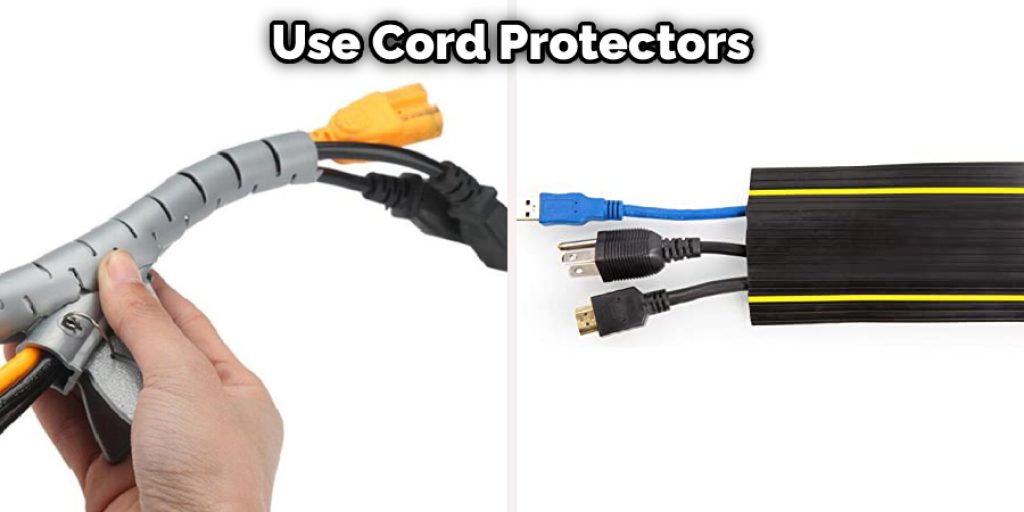
Step 6: Inspect the Cords Regularly
Even if you are using a cover or protectors, regularly inspect your electrical cords. Look for signs of wear and tear, and be sure to replace any damaged cords immediately. This will help to prevent any accidents or injuries from occurring.
Step 7: Store Cords Properly
When not in use, be sure to store electrical cords properly. This will help extend their lifespan and keep them in good working conditions. Be sure to wrap cords loosely and avoid kinking or twisting them. Store them in a dry, cool place out of direct sunlight.
Step 8: Follow Safety Precautions
As with any electrical work, you must follow all safety precautions. Be sure to read the instructions carefully and always consult an expert if you are unsure how to proceed. By taking these simple precautions, you can help to keep your family safe and avoid any accidents.
There you have it! Our guide on how to protect electrical cords outside. By following these simple tips, you can help to keep your family safe and reduce the risk of electrical accidents.
How to Keep Your Electrical Cords Safe from The Weather
Are your electrical cords safe from the weather? With the help of these tips, they will be! First, consider using a cover for your outlets. These covers will protect your cords from getting wet and keep any debris out. You can find covers at most hardware stores.
Second, make sure to seal up any cracks or holes in your home that could let water or pests in. This includes outlets that are not being used. Finally, be sure to unplug your cords before a storm hits. This will protect them from getting damaged by lightning strikes.
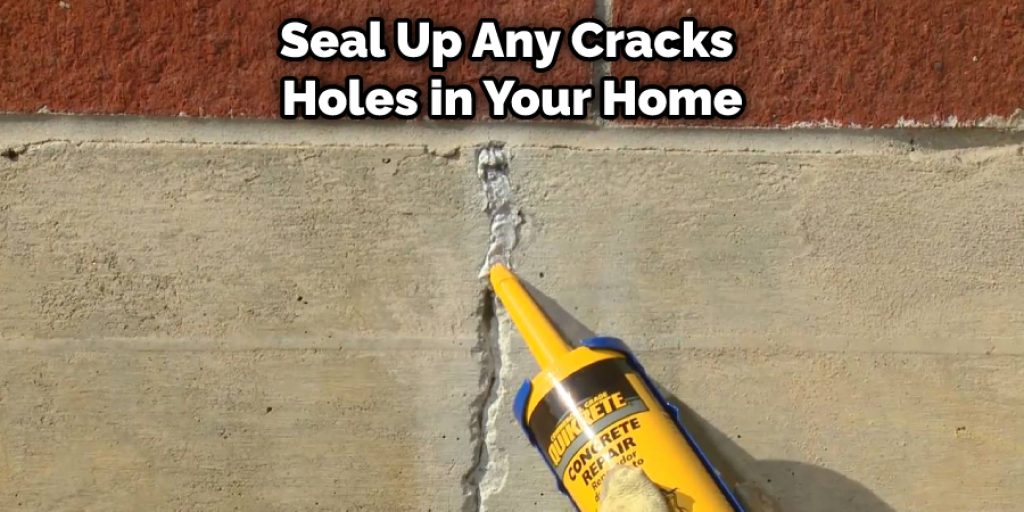
By following these tips, you can rest assured that your electrical cords will be safe from the weather.
How to Protect Your Electrical Cords from Being Damaged
Electrical cords are essential for powering many of our devices, but they can be easily damaged. Exposed wires can lead to shorts and sparks, and damage to the insulation can cause the cord to overheat. Here are some tips to help protect your electrical cords from being damaged.
First, avoid placing them in high-traffic areas where they can be tripped over or crushed. Second, Inspect the cord regularly for any damage, and replace it if necessary. Third, use a surge protector to protect your devices from power surges.
Following these simple tips can help keep your electrical cords in good condition and prevent costly repairs. Keep reading for more information about how to protect electrical cords outside.
What Are Some Tips for Protecting My Electrical Cords Outside?
Electrical cords are essential for running power to outdoor lights, Christmas decorations, and other devices. However, they can also be a hazard if they’re not used properly. Here are some tips for protecting your electrical cords outside:
- Make sure that the cords are rated for outdoor use. Indoor cords are not designed to withstand the elements and can quickly deteriorate.
- Keep the cords away from areas where they might be damaged, such as walkways and lawn mowers.
- Use cord covers or wraps to protect the cords from weather and animals.
- Inspect the cords regularly for signs of damage, such as fraying or broken insulation. If you find any damage, replace the cord immediately.
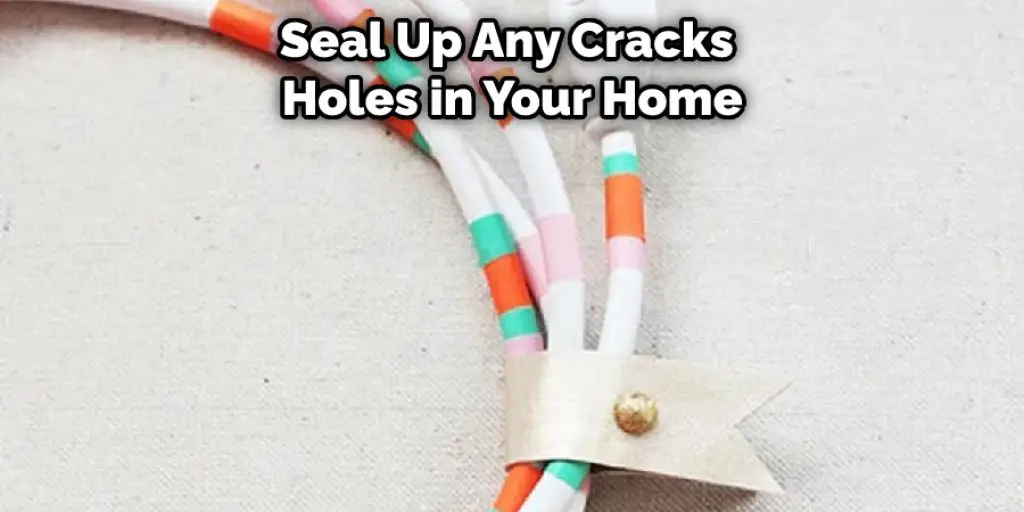
By following these simple tips, you can help ensure that your electrical cords will last for years.
How Can I Prevent My Electrical Cords from Being Damaged Outside?
Like most people, you probably have a few electrical cords that you use regularly. Perhaps you have a cord for your laptop, another for your phone charger, and maybe even one for your outdoor lights. However, if you’re not careful, those cords can quickly become damaged by the elements. Here are a few tips to help prevent damage to your electrical cords:
- First, make sure that the cords are properly rated for outdoor use. If they’re not, they could be at risk of shorting out when exposed to moisture.
- Second, keep an eye on the condition of the cord insulation. If it begins to crack or peel, it could allow water or other foreign objects into the cord, which could cause damage.
- Finally, avoid placing the cord in direct sunlight whenever possible. The heat from the sun can degrade the insulation over time, making it more susceptible to damage.
By following these simple tips, you can help ensure that your electrical cords remain in good condition for years to come.
Check it out to Run Extension Cord from Outside to Inside
Frequently Asked Question
Can I Use Electrical Cords Outside?
Yes, you can use electrical cords outside as long as you take the proper precautions to protect them from the elements.
What Is the Best Way to Protect Electrical Cords Outside?
The best way to protect electrical cords outside is to use a cord protector. A cord protector is a rubber or plastic shield that fits over the plug and protects it from the weather. You can also use electrical tape to cover the plug and dry it.
Why Do I Need to Protect My Electrical Cords Outside?
Electrical cords can be damaged by outdoor elements, such as wind, rain, and sun. This can cause the cords to short out and create a fire hazard. To protect your electrical cords outside, you can use a cord protector. A cord protector is a PVC tube placed over the electrical cord. It protects the cord from the elements and keeps it working properly.
Is It Safe to Leave Extension Cords Outside?
Leaving extension cords outside can be dangerous, as the weather can easily damage them. For example, heavy rain or snow can cause the cords to short out, and extreme temperatures can cause the insulation on the cords to break down, leading to potential electrical shocks.
Conclusion
Outdoor electrical cords can be a safety hazard if not properly protected. Follow these tips to keep your family safe and your holiday lights shining bright. Thanks for reading our post about how to protect electrical cords outside. Have you ever experienced an outdoor electrical outage? Share your story in the comments below!

